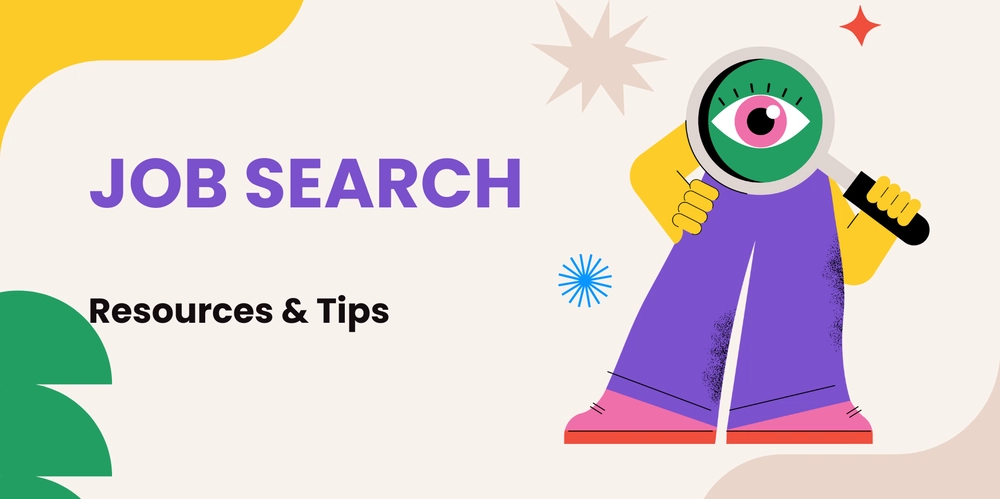A Complete Guide From Campus To Career

In today's competitive job market, college students need clear goals and effective strategies to succeed.
XXAI offers comprehensive job search resources and practical tips for college students about to enter the workforce, helping you stand out in a competitive job market.
The current job landscape across Europe and America is experiencing a remote work revolution, offering global opportunities while demanding stronger self-management and virtual collaboration skills. Although students face challenges like limited experience and underdeveloped professional networks, with proper guidance, you can transition "from confusion to confidence in just 2 months."
As the next generation of professionals, your advantages in technological adaptability, innovative thinking, and global perspective can become powerful competitive strengths.
Career Planning and Preparation
Career Planning Fundamentals
Self-assessment is your starting point: complete career interest assessments (like the Holland Interest Inventory), reflect on experiences that gave you a sense of achievement, and list your core values. Explore industries through career fairs, informational interviews, and industry seminars.
Set staged career goals:
● Short-term (3-6 months): Complete online courses relevant to your target career
● Medium-term (6 months-2 years): Gain internship experience or relevant certifications
● Long-term (2-5 years): Enter your ideal company after graduation or establish a professional reputation in your field
Building Your Professional Image and Personal Brand
Optimize your LinkedIn profile with a professional headshot, craft an eye-catching headline (beyond just "Student at X University"), and create a detailed "About" section showcasing your career aspirations.
Update content regularly: share 1-2 field-relevant articles weekly and document professional seminars and conferences you attend.
Accumulating Professional Experience
Actively apply for relevant internships starting sophomore year and utilize your career services center for on-campus opportunities. Choose volunteer experiences aligned with your career goals, participate in student organization projects, and join industry competitions and hackathons.
Job Application Materials
Resume Essentials
For students with limited work experience:
● Place education at the top, detailing relevant coursework and academic achievements
● Emphasize course projects, especially those simulating real work environments
● Include campus leadership experiences and student organization involvement
● Create a "Relevant Experience" section integrating internships, volunteer work, and projects
Keep your resume to 1-2 pages (typically 1 page for recent graduates), using clear professional fonts and consistent formatting. Quantify achievements with numbers: "Increased club membership by 30%" rather than "Significantly increased membership."
Cover Letter Techniques
An effective cover letter includes: an opening paragraph introducing yourself and the position; middle paragraphs detailing why you're the ideal candidate; and a closing paragraph expressing interest in an interview.
Customize each letter: research company culture and developments, analyze the job description for key requirements, and use company terminology and industry keywords.
Portfolio Development
For creative industries, portfolios often outweigh resumes in importance. Select projects showcasing diverse skills, provide project context information, and document your creative process rather than just the final results.
Job Search Channels and Resources
Maximizing Campus Resources
Schedule one-on-one career counseling, attend resume workshops, and utilize mock interview services to prepare for real interviews.
Alumni networks are valuable yet often overlooked resources: use your school's alumni database to find graduates working in your target industries and attend career events organized by alumni associations.
Online Job Platforms and Tools
● Student-specific platforms: Handshake, WayUp, Internships
● General platforms: Indeed, LinkedIn, Glassdoor
● Specialized platforms: Stack Overflow Jobs (tech), Behance Jobs (creative), Idealist (non-profit)
Allocate 80% of your time to industry-specific platforms and 20% to general job websites for optimal results.
Interview Process and Assessment
Interview Preparation
Develop strategies for different interview formats: arrive 15 minutes early for in-person interviews; test equipment for video interviews; find a quiet location for phone interviews; and balance participation in group interviews.
Master the STAR method (Situation-Task-Action-Result) to construct compelling answers to behavioral questions.
Salary Research and Negotiation
Use platforms like Glassdoor and PayScale to research salary data by position, company, and region. When setting salary expectations, consider location, company size, industry, and your unique skill set.
Evaluate the entire offer beyond just salary figures: health insurance, retirement plans, paid leave policies, remote work flexibility, and professional development opportunities.
Remember, successful job searching requires not just skills and preparation but also strategic resource utilization and network building. Begin career planning in your freshman year, engage in internships and projects during sophomore year, prepare application materials in junior year, and actively apply by late junior or senior year.

